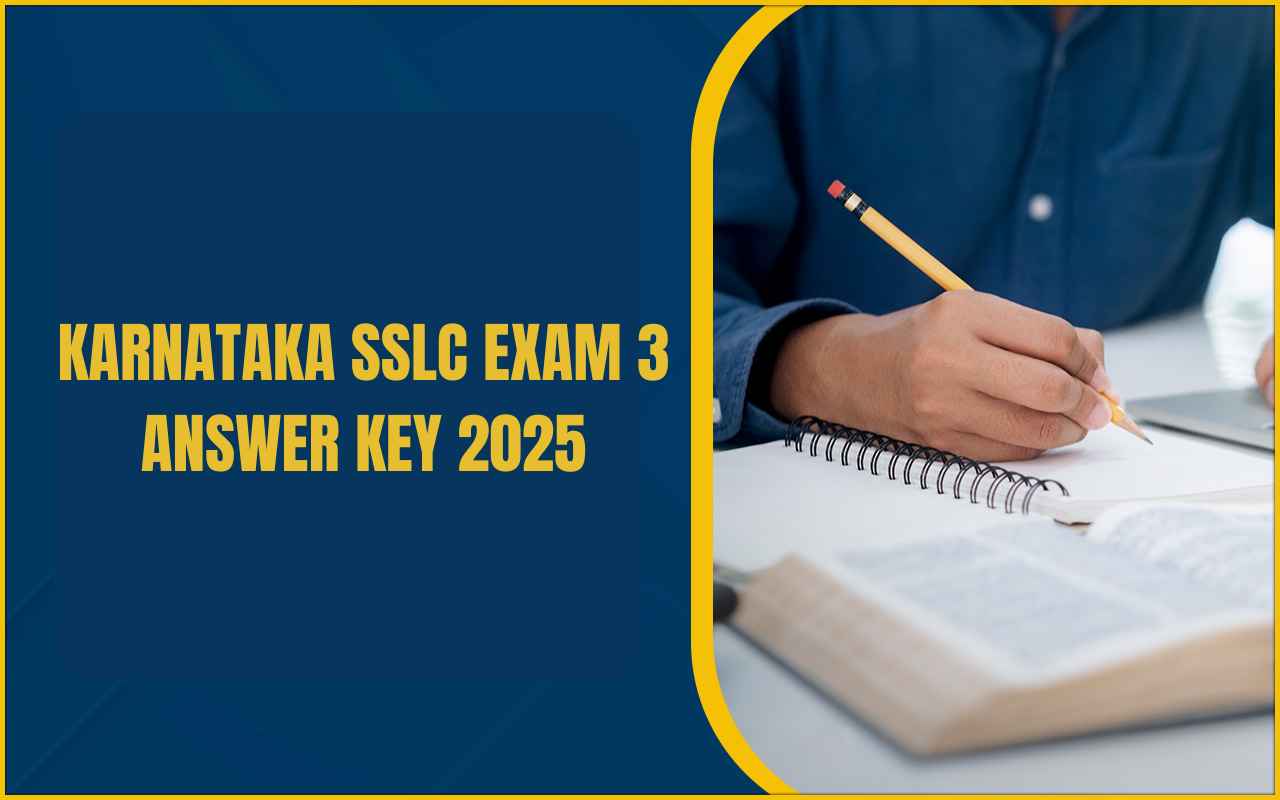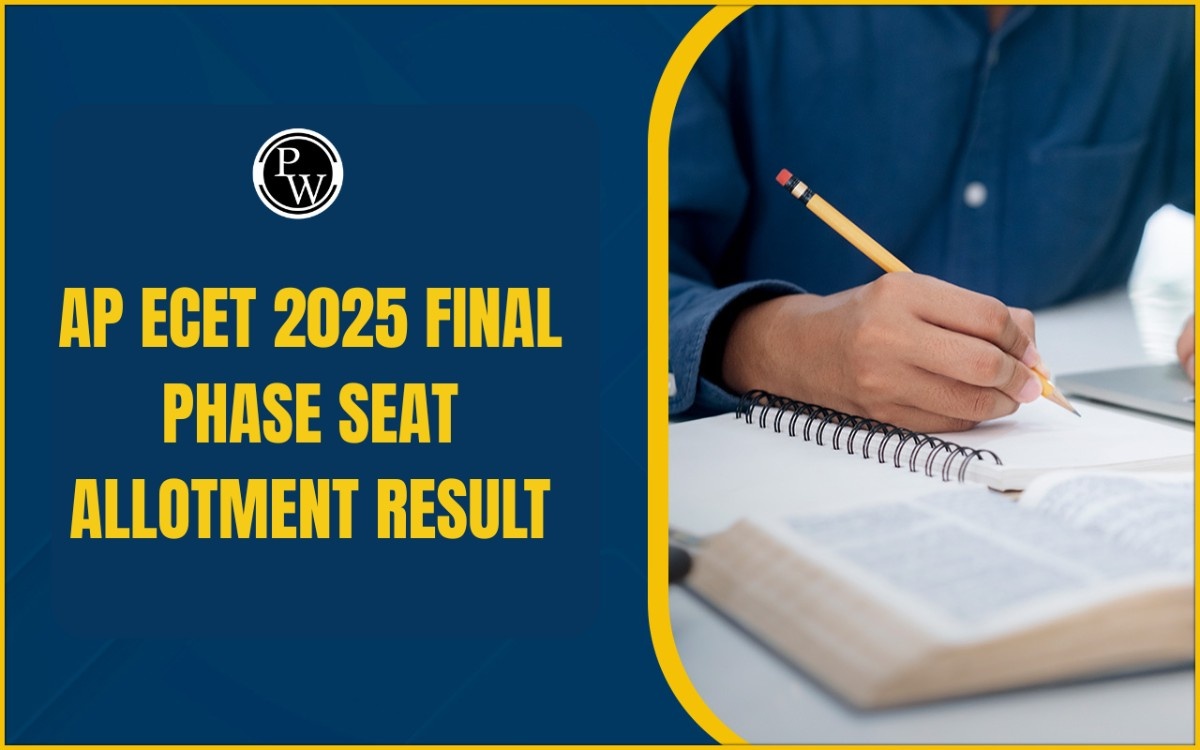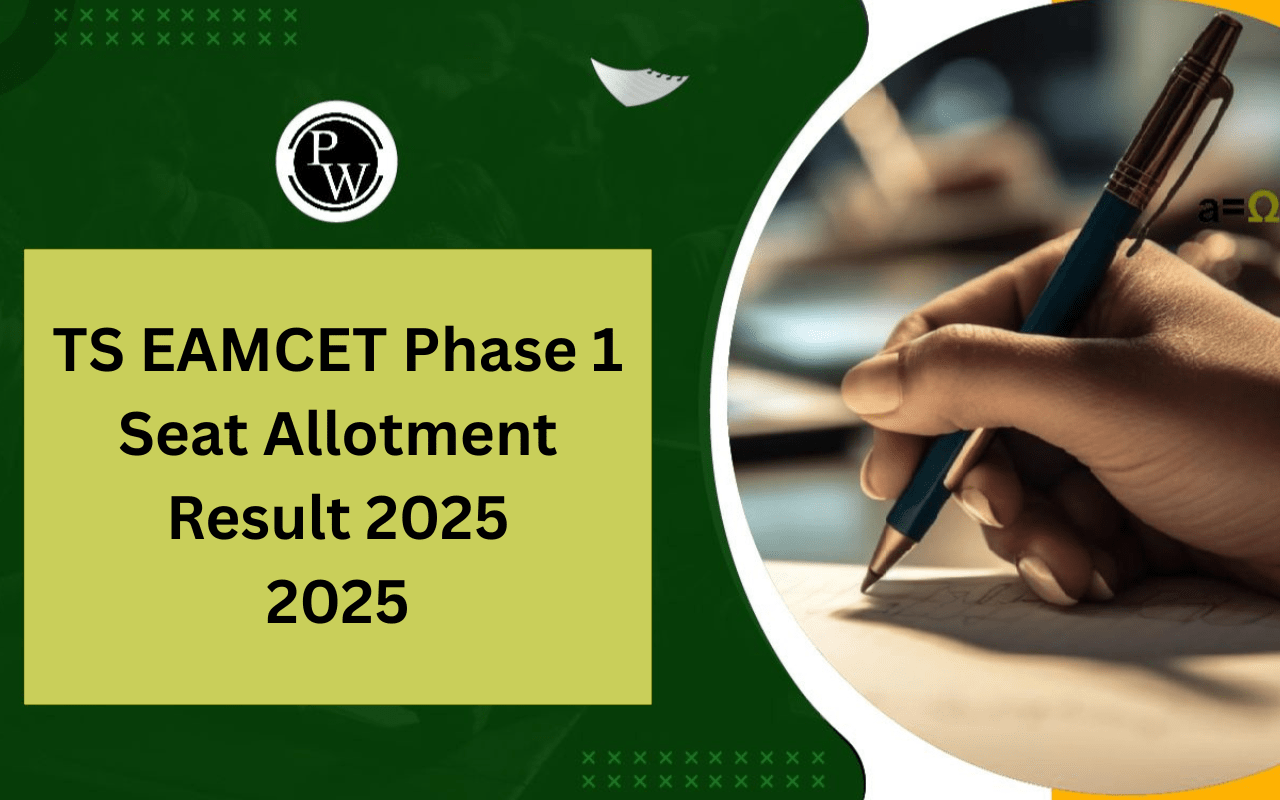
Karnataka Board Class 12th Chemistry Syllabus 2024-25 provides a deep understanding of essential chemistry concepts. It plays a crucial role in preparing candidates for the board exam and the competitive exams. The syllabus includes various units covering important branches like physical, organic, and inorganic chemistry, ensuring a balanced learning experience.
For this academic year, several topics have been deleted to make the syllabus more focused and relatable to the exam. This change provides candidates with an opportunity to concentrate on core areas. This article also covers the expert tips to prepare the entire Chemistry syllabus for Karnataka Board Class 12th.Karnataka Board Class 12th Chemistry Syllabus 2024-25 Overview
The Karnataka Board Class 12th Chemistry syllabus for the academic year 2024-25 offers a comprehensive approach, covering various units. The syllabus is designed to enhance conceptual understanding.| Karnataka Board Class 12th Chemistry Syllabus 2024-25 Overview | |
|---|---|
| Parameter | Details |
| Number of Units | 16 |
| Total Marks (Theory Exam) | 70 |
| Practical Exam Marks | 30 |
| Total Marks (Theory + Practical) | 100 |
| Units Deleted | 6 Units (Full Chapters) |
| Deleted Units | Unit 1, Unit 5, Unit 6, Unit 7, Unit 15, Unit 16 |
| Duration of Theory Exam | 3 Hours |
Karnataka Board Class 12th Chemistry Syllabus 2024-25
The syllabus includes important topics from different branches of chemistry, offering a balance between theoretical concepts and practical applications. Students will gain in-depth knowledge of chemical reactions, principles, and industrial applications. Check out the full syllabus given below.| Karnataka Board Class 12th Chemistry Syllabus 2024-25 | |
|---|---|
| Unit | Topics |
| Unit 1: The Solid State | 1.1 General Characteristics of Solid State 1.2 Amorphous and Crystalline Solids 1.3 Classification of Crystalline Solids 1.4 Crystal Lattices and Unit Cells 1.5 Number of Atoms in a Unit Cell 1.6 Close Packed Structures 1.7 Packing Efficiency 1.8 Calculations Involving Unit Cell Dimensions 1.9 Imperfections in Solids 1.10 Electrical Properties 1.11 Magnetic Properties |
| Unit 2: Solutions | 2.1 Types of Solutions 2.2 Expressing Concentration of Solutions 2.3 Solubility 2.4 Vapour Pressure of Liquid Solutions 2.5 Ideal and Non-ideal Solutions 2.6 Colligative Properties and Determination of Molar Mass 2.7 Abnormal Molar Masses |
| Unit 3: Electrochemistry | 3.1 Electrochemical Cells 3.2 Galvanic Cells 3.3 Nernst Equation 3.4 Conductance of Electrolytic Solutions 3.5 Electrolytic Cells and Electrolysis 3.6 Batteries 3.7 Fuel Cells 3.8 Corrosion |
| Unit 4: Chemical Kinetics | 4.1 Rate of a Chemical Reaction 4.2 Factors Influencing Rate of a Reaction 4.3 Integrated Rate Equations 4.4 Temperature Dependence of the Rate of a Reaction 4.5 Collision Theory of Chemical Reactions |
| Unit 5: Surface Chemistry | 5.1 Adsorption 5.2 Catalysis 5.3 Colloids 5.4 Classification of Colloids 5.5 Emulsions 5.6 Colloids Around Us |
| Unit 6: General Principles and Processes of Isolation of Elements | 6.1 Occurrences of Metals 6.2 Concentration of Ores 6.3 Extraction of Crude Metal from Concentrated Ore 6.4 Thermodynamic Principles of Metallurgy 6.5 Electrochemical Principles of Metallurgy 6.6 Oxidation Reduction 6.7 Refining 6.8 Uses of Aluminium, Copper, Zinc, and Iron |
| Unit 7: The p-Block Elements | 7.1 Group 15 Elements 7.2 Dinitrogen 7.3 Ammonia 7.4 Oxides of Nitrogen 7.5 Nitric Acid 7.6 Phosphorus – Allotropic Forms 7.7 Phosphine 7.8 Phosphorus Halides 7.9 Oxoacids of Phosphorus 7.10 Group 16 Elements 7.11 Dioxygen 7.12 Simple Oxides 7.13 Ozone 7.14 Sulphur – Allotropic Forms 7.15 Sulphur Dioxide 7.16 Oxoacids of Sulphur 7.17 Sulphuric Acid 7.18 Group 17 Elements 7.19 Chlorine 7.20 Hydrogen Chloride 7.21 Oxoacids of Halogens 7.22 Interhalogen Compounds 7.23 Group 18 Elements |
| Unit 8: The d- and f-Block Elements | 8.1 Position in the Periodic Table 8.2 Electronic Configurations of the d-Block Elements 8.3 General Properties of the Transition Elements (d-Block) 8.4 Some Important Compounds of Transition Elements 8.5 The Lanthanoids 8.6 The Actinoids 8.7 Some Applications of d- and f-Block Elements |
| Unit 9: Coordination Compounds | 9.1 Werner’s Theory of Coordination Compounds 9.2 Definitions of Some Important Terms Pertaining to Coordination Compounds 9.3 Nomenclature of Coordination Compounds 9.4 Isomerism in Coordination Compounds 9.5 Bonding in Coordination Compounds 9.6 Bonding in Metal Carbonyls 9.7 Importance and Applications of Coordination Compounds |
| Unit 10: Haloalkanes and Haloarenes | 10.1 Classification 10.2 Nomenclature 10.3 Nature of C-X Bond 10.4 Methods of Preparation of Haloalkanes 10.5 Preparation of Haloarenes 10.6 Physical Properties 10.7 Chemical Reactions |
| Unit 11: Alcohols, Phenols and Ethers | 11.1 Classification 11.2 Nomenclature 11.3 Structures of Functional Groups 11.4 Alcohols and Phenols 11.5 Some Commercially Important Alcohols 11.6 Ethers |
| Unit 12: Aldehydes, Ketones and Carboxylic Acids | 12.1 Nomenclature and Structure of Carbonyl Group 12.2 Preparation of Aldehydes and Ketones 12.3 Physical Properties 12.4 Chemical Reactions 12.5 Uses of Aldehydes and Ketones 12.6 Nomenclature and Structure of Carboxyl Group 12.7 Methods of Preparation of Carboxylic Acids 12.8 Physical Properties 12.9 Chemical Reactions 12.10 Uses of Carboxylic Acids |
| Unit 13: Amines | 13.1 Structures of Amines 13.2 Classification 13.3 Nomenclature 13.4 Preparation of Amines 13.5 Physical Properties 13.6 Chemical Reactions 13.7 Method of Preparation of Diazonium Salts 13.8 Physical Properties 13.9 Chemical Reactions 13.10 Importance of Diazonium Salts in Synthesis of Aromatic Compounds |
| Unit 14: Biomolecules | 14.1 Carbohydrates 14.2 Proteins 14.3 Enzymes 14.4 Vitamins 14.5 Nucleic Acids 14.6 Hormones |
| Unit 15: Polymers | 15.1 Classification of Polymers 15.2 Types of Polymerisation Reactions 15.3 Molecular Mass of Polymers 15.4 Biodegradable Polymers 15.5 Polymers of Commercial Importance |
| Unit 16: Chemistry in Everyday Life | 16.1 Drugs and Their Classification 16.2 Drug-Target Interaction 16.3 Therapeutic Action of Different Classes of Drugs 16.4 Chemicals in Food 16.5 Cleansing Agents |
Karnataka Board Class 12th Chemistry Syllabus 2024-25 Deleted Topics
Some units have been removed from the 2024-25 syllabus. These deletions aim to streamline content, making it more focused and manageable for students while retaining essential concepts for learning outcomes.| Karnataka Board Class 12th Chemistry Syllabus 2024-25 Deleted Topics | ||
|---|---|---|
| Unit Name | Page No. | Deleted Topics |
| Unit 1: The Solid State | 1–34 | Full chapter |
| Unit 5: Surface Chemistry | 123–148 | Full chapter |
| Unit 6: General Principles and Processes of Isolation of Elements | 149–169 | Full chapter |
| Unit 7: The P-block Elements | 170–214 | Full chapter |
| Unit 15: Polymers | 433–446 | Full chapter |
| Unit 16: Chemistry in Everyday Life | 447–463 | Full chapter |
Karnataka Board Class 12th Chemistry Syllabus Deleted Topics PDF
Karnataka Board Class 12th Chemistry Syllabus for 2024-25 has been revised, with some topics and chapters removed to make the course easier for students. These changes have been done to make the syllabus more relevant to the current requirement. Students need to be familiar with these updates to plan their studies better. A detailed list of the deleted topics is provided in a PDF, which is available to download.Karnataka Board Class 12th Chemistry Syllabus Deleted Topics PDF
How to Prepare Karnataka Board Class 12th Chemistry Syllabus 2024-25?
- Start by carefully reading the syllabus. Students should understand what each chapter covers and how much weight each topic carries. It’s important to divide the syllabus into smaller parts, focusing first on the chapters that are more important or challenging.
- Since chemistry requires a strong grasp of concepts, students should avoid just memorizing equations or definitions. Instead, focus on understanding the ‘why’ and ‘how’ behind them. Once core concepts are clear, solving problems and answering theory questions will become much easier.
- For topics like chemical kinetics or electrochemistry that involve numerical problems, students should set aside time daily to practice. Consistent practice will help improve both speed and accuracy, which are essential for exam success.
- While studying each topic, students should make short notes on key points, formulas, and reactions. These notes will be helpful for quick revisions. Revising regularly, rather than at the last moment, will keep information fresh and easier to recall.
- Even though some topics have been deleted from the syllabus, students should still try to understand them on a basic level. This will provide a better grasp of related concepts, which might still be useful in understanding the rest of the syllabus.
- Students should practice past exam papers to get familiar with the type of questions asked in the exam. This not only helps in understanding the exam pattern but also improves time management during the exam, making it one of the best ways to assess preparation.
- Consistency is key. Students should stick to their study plan, but if they face difficulties with certain topics, they shouldn’t hesitate to ask teachers for help. Discussing difficult concepts with friends or teachers can clarify doubts and boost confidence.
Karnataka Board Class 12th Chemistry Syllabus 2024-25 FAQs
Are there any changes in the exam pattern for Karnataka Board Class 12th Chemistry in 2024-25?
Yes, the exam pattern remains similar to previous years, focusing on both theoretical and practical knowledge. The theory exam will carry 70 marks, while the practical exam contributes 30 marks, making a total of 100 marks. However, the exact weightage of each section may vary slightly.
How can students manage time effectively for Chemistry preparation?
Students should create a study schedule that includes time for theory, numerical practice, and revision. Prioritize challenging topics and solving past years’ question papers is also an excellent way to improve time management during the exam.
What resources should students refer to apart from the textbook?
Apart from the prescribed textbooks, students can refer to additional resources like NCERT books for conceptual clarity.
Is it necessary to study the deleted topics for competitive exams?
While the deleted topics are not required for the board exams, it’s recommended that students have a basic understanding of them, especially if they are preparing for competitive exams like NEET or JEE.
🔥 Trending Blogs
Talk to a counsellorHave doubts? Our support team will be happy to assist you!

Check out these Related Articles
Free Learning Resources
PW Books
Notes (Class 10-12)
PW Study Materials
Notes (Class 6-9)
Ncert Solutions
Govt Exams
Class 6th to 12th Online Courses
Govt Job Exams Courses
UPSC Coaching
Defence Exam Coaching
Gate Exam Coaching
Other Exams
Know about Physics Wallah
Physics Wallah is an Indian edtech platform that provides accessible & comprehensive learning experiences to students from Class 6th to postgraduate level. We also provide extensive NCERT solutions, sample paper, NEET, JEE Mains, BITSAT previous year papers & more such resources to students. Physics Wallah also caters to over 3.5 million registered students and over 78 lakh+ Youtube subscribers with 4.8 rating on its app.
We Stand Out because
We provide students with intensive courses with India’s qualified & experienced faculties & mentors. PW strives to make the learning experience comprehensive and accessible for students of all sections of society. We believe in empowering every single student who couldn't dream of a good career in engineering and medical field earlier.
Our Key Focus Areas
Physics Wallah's main focus is to make the learning experience as economical as possible for all students. With our affordable courses like Lakshya, Udaan and Arjuna and many others, we have been able to provide a platform for lakhs of aspirants. From providing Chemistry, Maths, Physics formula to giving e-books of eminent authors like RD Sharma, RS Aggarwal and Lakhmir Singh, PW focuses on every single student's need for preparation.
What Makes Us Different
Physics Wallah strives to develop a comprehensive pedagogical structure for students, where they get a state-of-the-art learning experience with study material and resources. Apart from catering students preparing for JEE Mains and NEET, PW also provides study material for each state board like Uttar Pradesh, Bihar, and others
Copyright © 2025 Physicswallah Limited All rights reserved.












